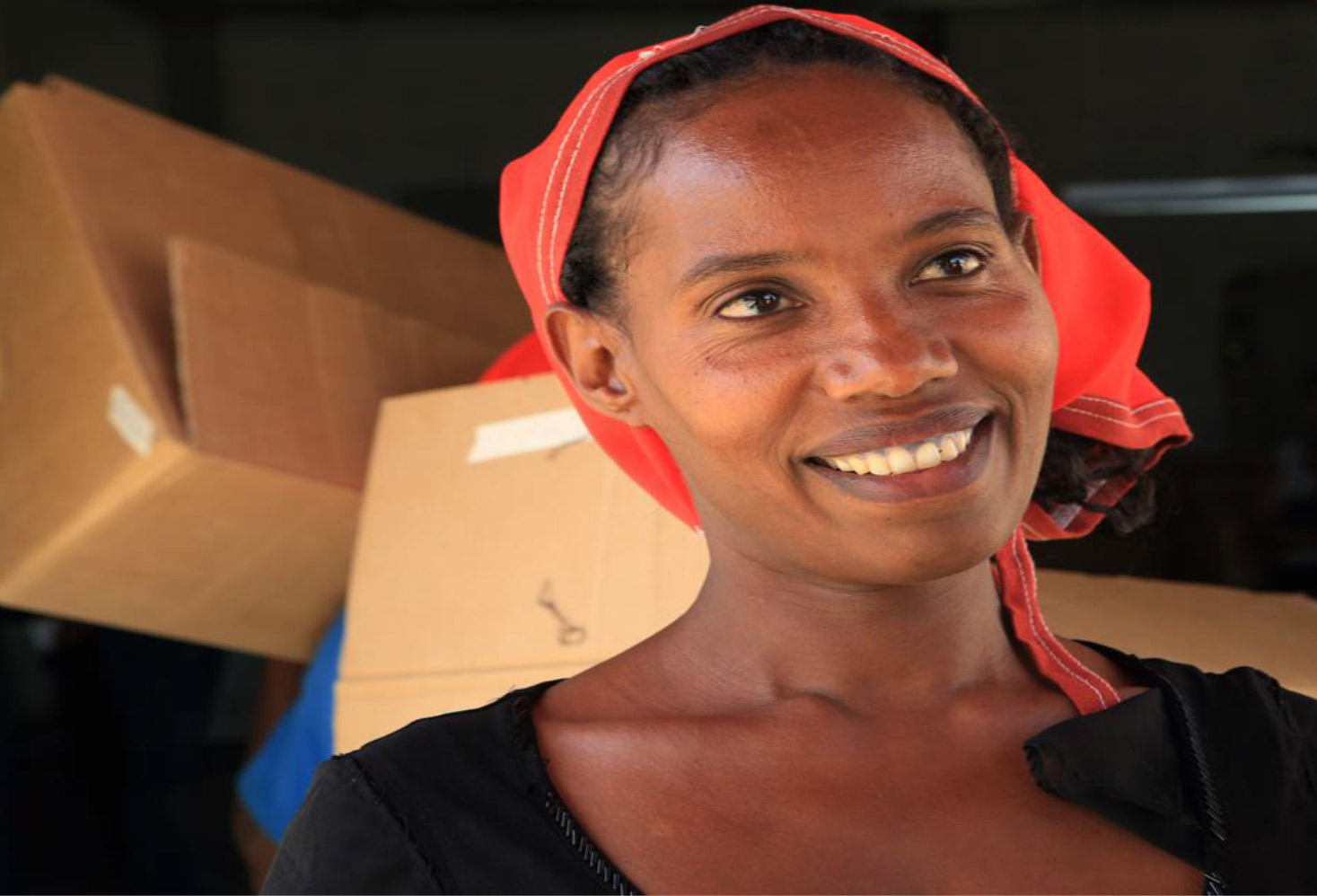We plan to facilitate high-value apparel exports with strong participation from Ethiopian firms that are globally competitive as a result of technology transfer from quality foreign direct investment, with a high level of in-country value addition. We believe this will result in decent factory jobs for poor women and higher incomes for cotton farmers.
Background
Ethiopia’s’ investment in export infrastructure is strengthening its efforts to become Africa’s’ leading manufacturing hub in the near future. In the first six months of the 2016-17 fiscal year, Ethiopia’s’ economic momentum has already attracted foreign investments of over $1.2 billion. This has facilitated the creation of millions of jobs, and knowledge transfer enabling Ethiopia to exceed export performance expectations.
Enterprise Partners works across entire value chains and markets within Ethiopia’s cotton, textile, and apparel industries to foster economic growth, aiming to make Ethiopia a leading international hub for apparel.
By establishing channels which encourage high-value apparel exports, Enterprise Partners intends to attract quality foreign investment and ensure strong participation among Ethiopian firms and SMEs. This will ensure a high level of in-country value addition that will result in decent factory jobs, especially for poor women, and higher incomes for cotton farmers.
Enterprise Partners is committed to building value through the multidimensional intersection of cotton, textiles, and apparel.
To this end, we are engaged in a number of initiatives, such as the National Apparel Strategy and the National Cotton Development Strategy, as well as cotton seed multiplication, contract farming with the textile industry, improving the labour system in industrial parks, green industrialization and buyer-led investment.
Enterprise Partners intends to generate £70 million worth of new investments, and income opportunities for 20,000 smallholder cotton farmers and 30,000 manufacturing jobs, 75% of which will be taken by women.
Theory of Change
Markets
Cotton
Enterprise Partners has established initiatives targeting the development of various aspects of Ethiopia’s cotton industry, including influencing Ethiopia’s National Cotton Strategy, proper cotton seed multiplication, and finding ways to connect the country’s’ cotton farmers with its textile industry.
Through these efforts, we ensure that farmers transition to using better quality seeds, and obtain access to cost-efficient seed multiplication technology, making seeds more affordable. From scaling-up cotton production to improving post-harvest seed processing, we work to increase cotton production, create greater access to investment, and help producers to connect with a competitive international textile industry.
Labour
In collaboration with stakeholders, Enterprise Partners seeks to establish a viable market-driven labour system, ensuring factories operate at close to full efficiency, and creating decent jobs for youth and women in the process.
In order to do so, Enterprise Partners has organised an initiative at Hawassa Industrial Park to screen, grade, as well as source, and train industrial workers. We also provide soft skill training for all those hired to work in the industrial parks. These efforts will lead to the establishment of a qualified, and skilled labour force, and create employment opportunities for low-income women in Ethiopia. We plan to replicate this successful labour market model at a national level and implement it in other industrial parks to be established by the Ethiopian government.
Apparel
Enterprise Partners has created a number of initiatives within Ethiopia’s’ apparel market. We have developed a comprehensive National Apparel Strategy, helped to improve the supply of quality inputs by SMEs, advocated policies and initiatives to attract foreign investment, and developed an industrialisation strategy for Ethiopia which puts environmental and social sustainability at its core.



